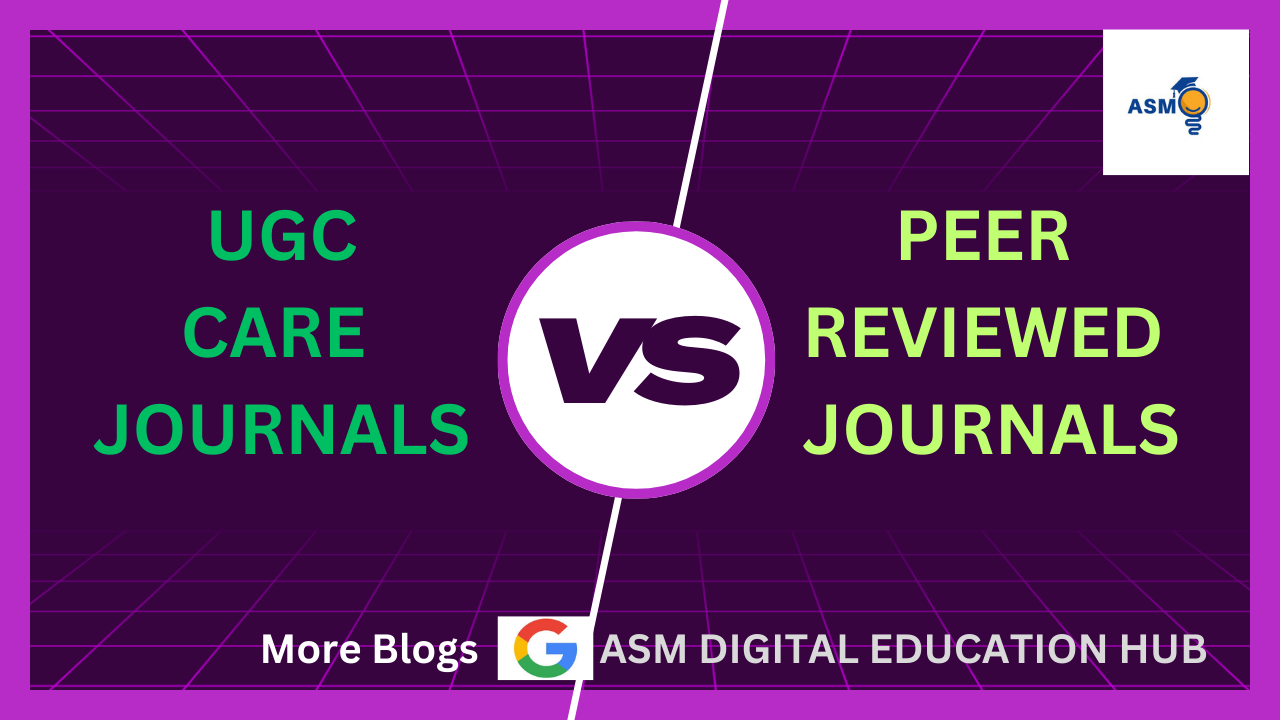Genuine UGC CARE The Key Difference and Importance GENUINE UGC CARE
While the Genuine UGC CARE List is a helpful starting point for identifying reputable journals, peer review is the cornerstone of scholarly research. Publishing in high-quality peer-reviewed journals is generally. considered more prestigious and carries greater weight in academia in Genuine UGC CARE .
University Grant Commission (UGC) and GENUINE UGC CARE List:
- The UGC is indeed a government body in India that oversees higher education.
- UGC CARE (Consortium for Academic and Research Ethics) doesn’t publish journals itself.
- Instead, UGC maintains a list of reputable journals called the UGC-CARE List.
- This list includes journals that meet specific quality criteria and follow ethical publishing standards.
- The UGC is indeed a government body that oversees higher education in India.
- UGC CARE (Consortium for Academic and Research Ethics) is an initiative by the UGC.
- UGC CARE maintains a list of reputable journals – the UGC CARE List. This list helps researchers identify journals that meet specific quality criteria.
GENUINE UGC CARE List:
- Genuine UGC CARE Maintained by the University Grants Commission (UGC) of India.
- Serves as a curated list of reputable journals that meet specific quality standards.
- Genuine UGC CARE Inclusion on the list indicates the journal adheres to ethical publishing practices and undergoes some quality control.
- Not a publishing body itself – it doesn’t publish research papers.
GENUINE UGC CARE List vs. Peer-Reviewed Journals:
- UGC CARE List: This is a curated list by the UGC, but inclusion doesn’t necessarily guarantee rigorous peer review.
- The list has two categories:
- Group I: Journals evaluated by UGC-CARE for quality.
- Group II: Journals indexed in globally recognized databases (like Scopus) which are presumed to have good practices.
- The list has two categories:
Peer-Reviewed Journals: These journals follow a stricter process where experts in the field anonymously review submitted research papers Genuine UGC CARE.
This review ensures the research meets quality standards for methodology, originality, and contribution to the field.
- Publish original research that undergoes a rigorous review process by experts in the field (peers).
- Reviewers assess the research methodology, findings, and overall contribution to the field.
- This process helps ensure the research is credible, sound, and adds new knowledge.
- Highly respected in academia and considered the gold standard for scholarly communication.
GENUINE UGC CARE List vs. Peer-Reviewed Journals
Focus:
- UGC CARE List: Ensures journals maintain ethical publishing practices and meet basic quality standards.
- Peer-Reviewed Journals: Focus on the rigorous review process by experts in the field to assess the research paper’s quality, originality, and methodology.
Specificity:
- UGC CARE List: Broader categorization, including journals indexed in globally recognized databases (like Scopus) and those evaluated through UGC-CARE protocols.
- Peer-Reviewed Journals: Encompass a wider range of publications across various disciplines, with varying levels of prestige depending on the specific journal’s reputation and impact factor.
Importance of Peer-Reviewed Journals
- Quality Control: Peer review ensures published research is credible, based on sound methodology, and contributes meaningfully to the field.
- Reputation and Impact: Publishing in well-respected peer-reviewed journals enhances an author’s reputation and the research’s visibility within the academic community.
- Career Advancement: In India, publications in high-quality peer-reviewed journals often hold significant weight for promotions and academic appointments.
- Credibility: Ensures research is reliable and contributes valuable knowledge Genuine UGC CARE.
- Impact: Research published in well-respected peer-reviewed journals gains wider recognition and can influence future research.
- Career Advancement: Publishing in peer-reviewed journals Genuine UGC CARE are often a requirement for promotions and tenure in academic careers.
- Peer-reviewed journals are generally considered more prestigious and hold more weight in academic circles.
- Publishing in them demonstrates the quality and credibility of your research.
- They are often used for:
- Faculty promotions and career advancement.
- Grant applications and securing research funding.
- Establishing yourself as an expert in your field.
Key Differences:
- Focus: UGC CARE focuses on identifying reputable journals, while peer review focuses on the quality of individual research papers.
- Scope: UGC CARE includes journals across various disciplines, while peer review happens within a specific research field.
- Rigor: The peer-review process in good peer-reviewed journals is generally more stringent than the quality checks involved in getting listed on UGC CARE.
In short:
- Both UGC CARE and peer review aim to ensure research quality.
- UGC CARE identifies reputable journals, while peer review evaluates individual papers.
- Peer-reviewed journals hold the highest standard for scholarly communication due to their rigorous review process.


